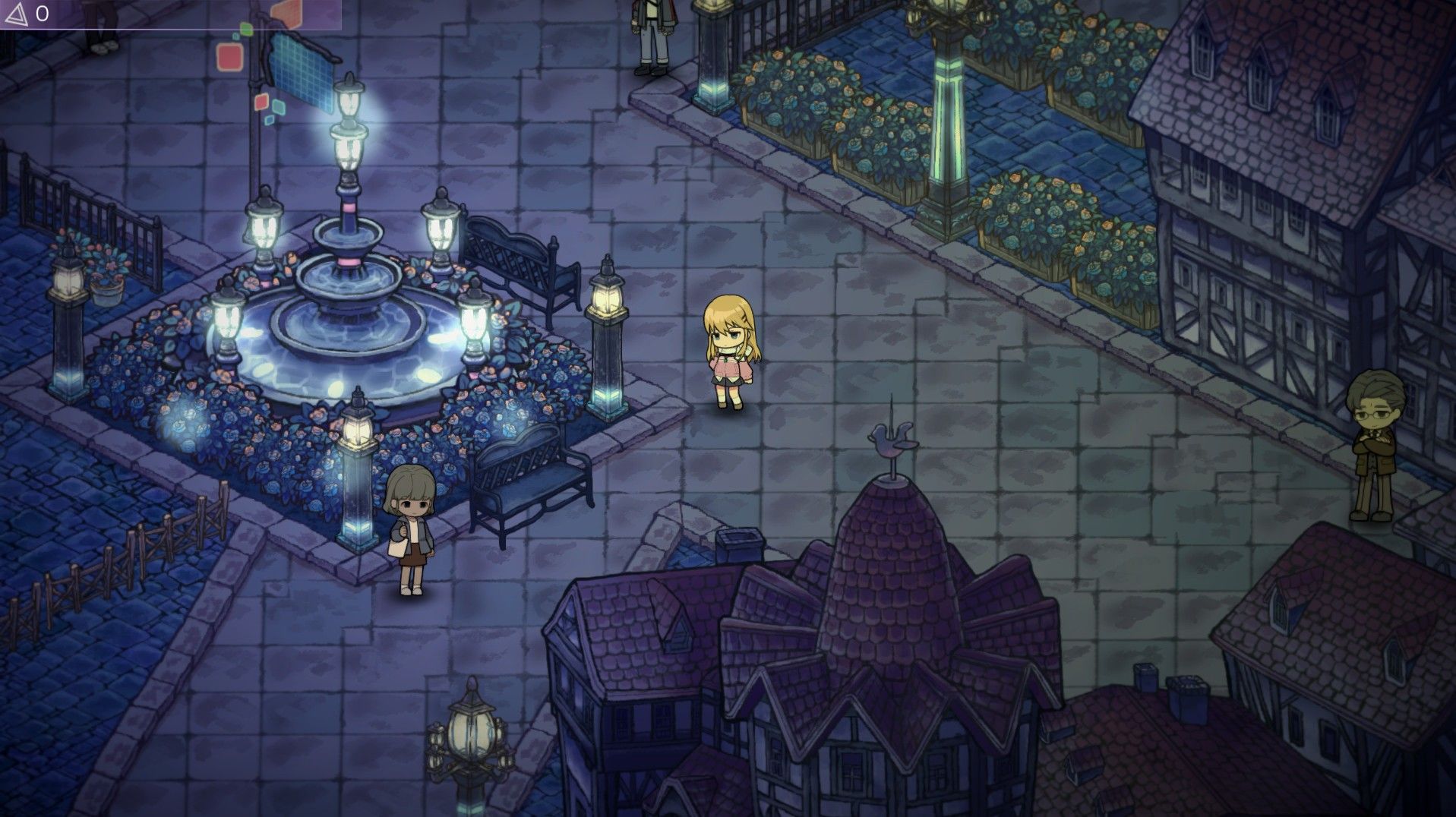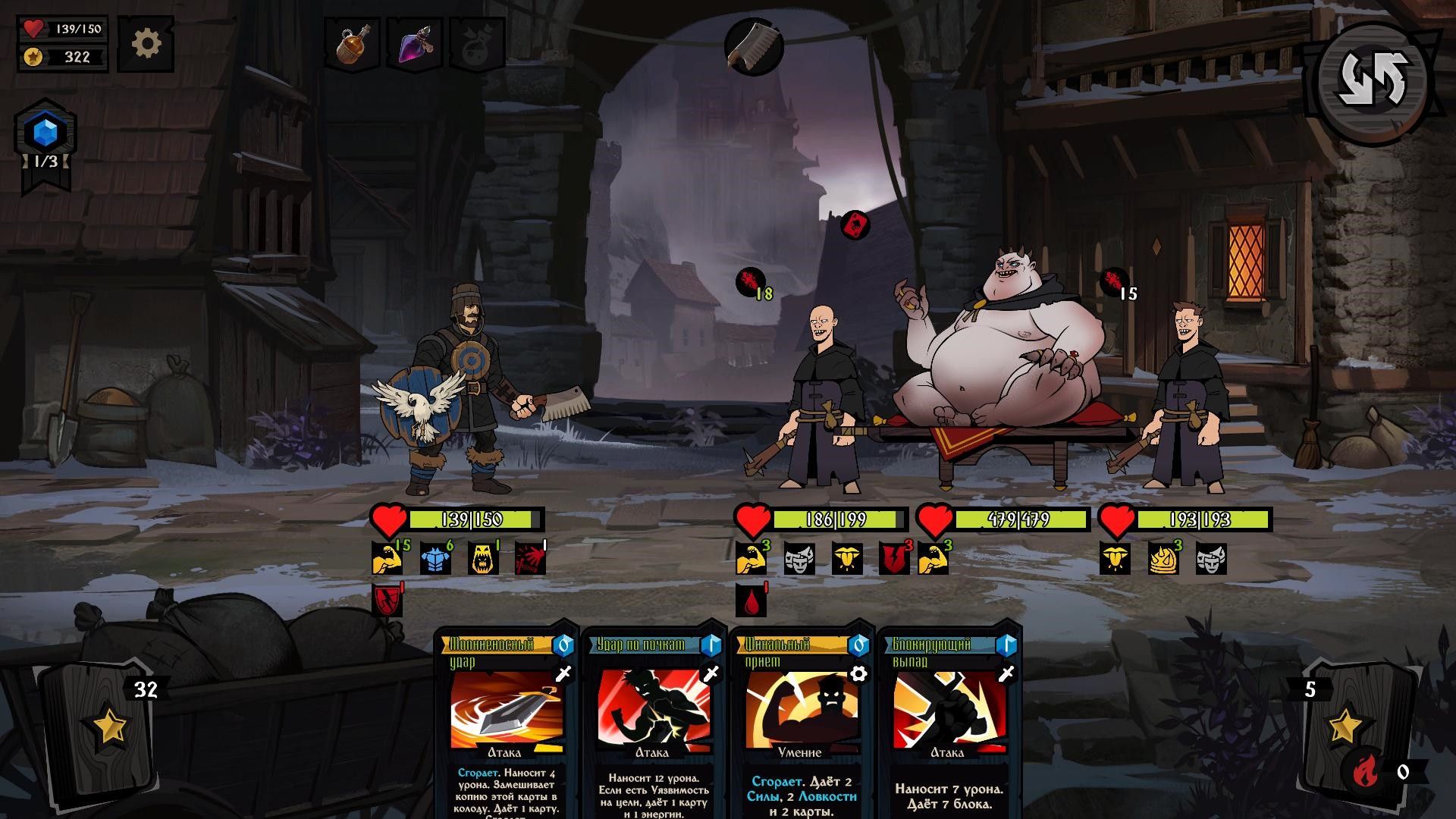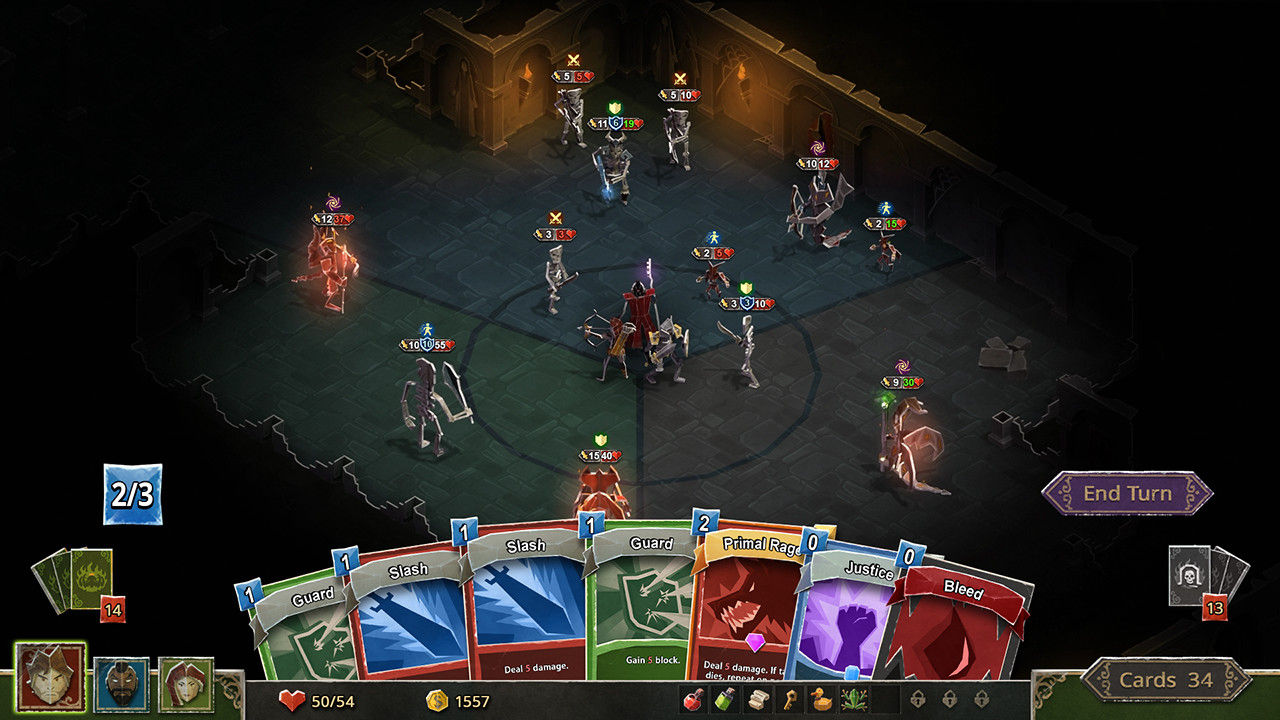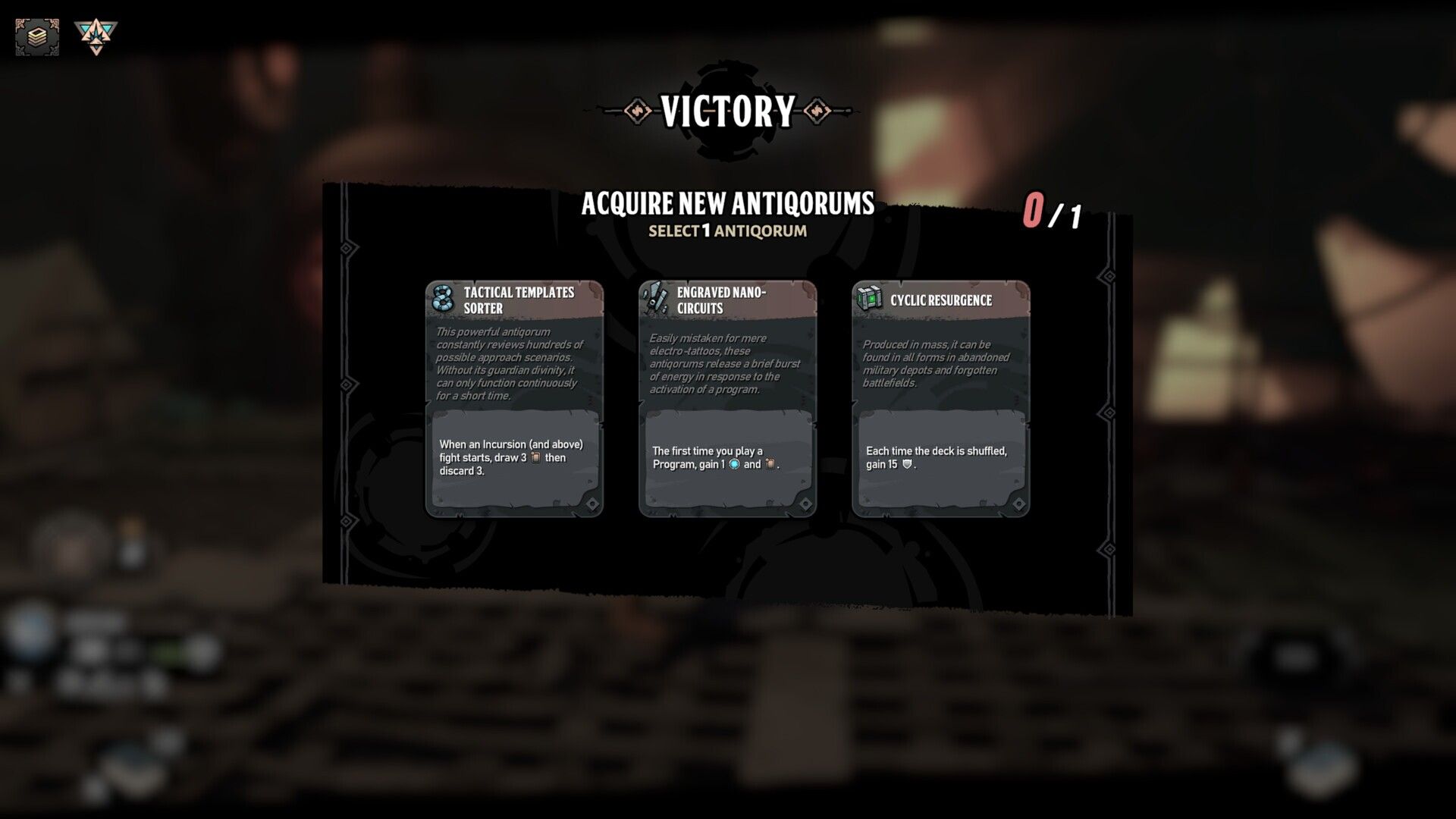Vault of the Void VS Deck of Ashes
Master the void or the flames in this strategic battle.
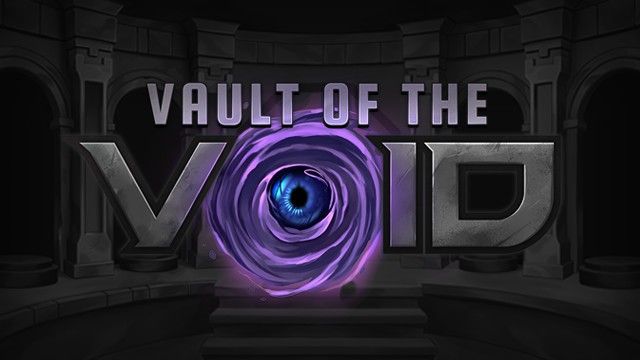
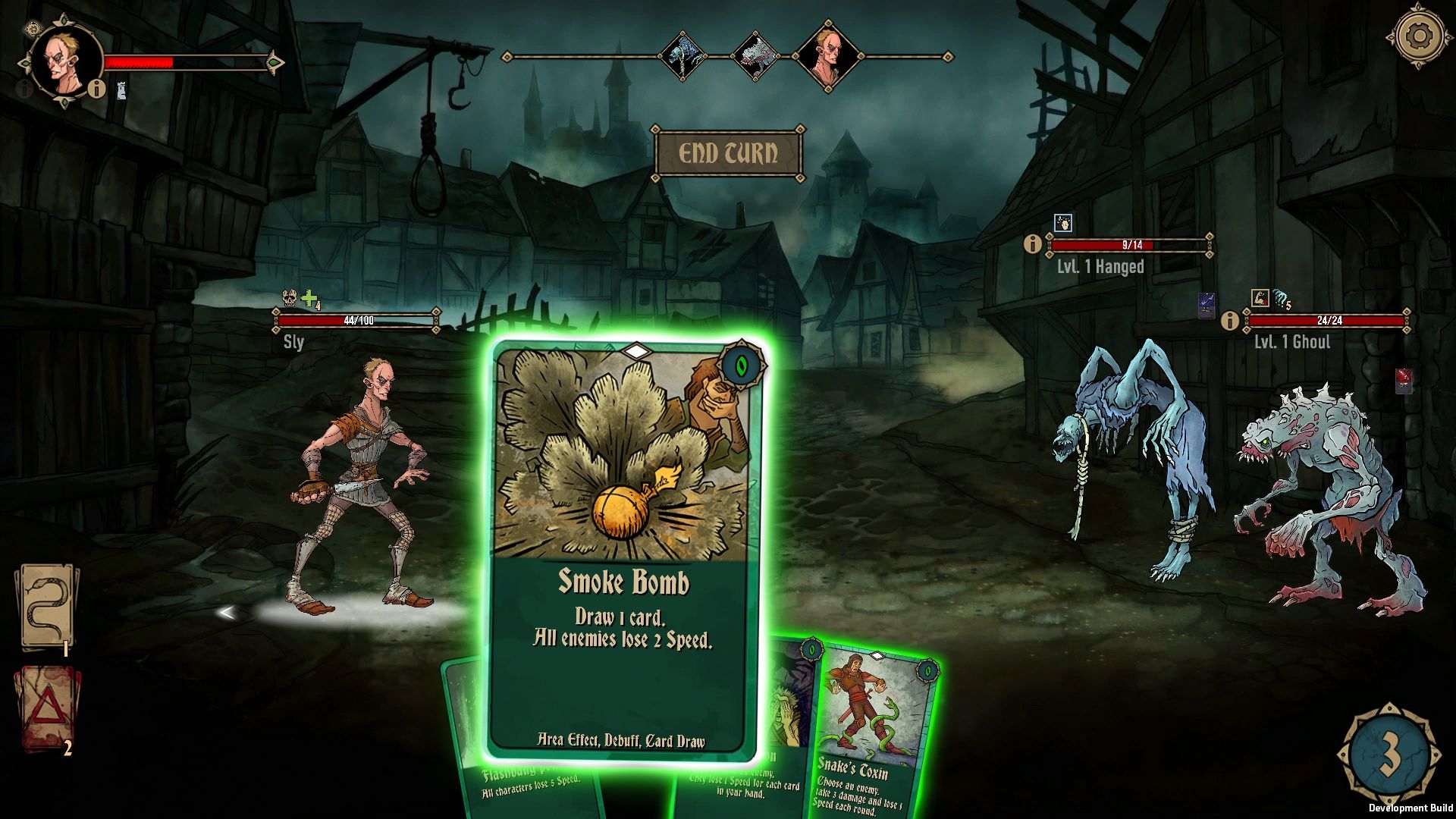
Vault of the Void vs Deck of Ashes: A Tactical Showdown in Roguelike Deckbuilding
Deckbuilding Mechanics
Vault of the Void sets itself apart with its dynamic approach to deckbuilding. Unlike traditional card games where you gradually build your deck, Vault of the Void allows for strategic swaps before each encounter. This flexibility in card management means players can tailor their strategy to counter specific threats, leveraging Void Stones to enhance card abilities for unique combinations. On the other hand, Deck of Ashes leans into a more traditional card acquisition system. Players collect and craft cards throughout their journey, emphasizing long-term planning and resource management. The game encourages experimentation with a wide array of card combinations, although it lacks the immediate adaptability found in Vault of the Void.
Vault of the Void sets itself apart with its dynamic approach to deckbuilding. Unlike traditional card games where you gradually build your deck, Vault of the Void allows for strategic swaps before each encounter. This flexibility in card Management means players can tailor their strategy to counter specific threats, leveraging Void Stones to enhance card abilities for unique combinations. On the other hand, Deck of Ashes leans into a more traditional card acquisition system. Players collect and craft cards throughout their journey, emphasizing long-term planning and resource Management. The game encourages experimentation with a wide array of card combinations, although it lacks the immediate adaptability found in Vault of the Void.
Difficulty and Accessibility
Both games are challenging, but their approach to difficulty varies. Vault of the Void is unforgiving yet fair, with its Purging mechanic allowing skilled players to mitigate potential failures by sacrificing cards strategically. This creates a high skill ceiling, making it rewarding for players who enjoy mastering complex systems. Deck of Ashes, however, introduces a survival element, where resource management is crucial. With limited opportunities to heal or restore cards, players must thoughtfully plan their moves and upgrades. While this adds depth, it also raises the barrier for newcomers who might find the learning curve steep without thorough guidance.
Both games are challenging, but their approach to difficulty varies. Vault of the Void is unforgiving yet fair, with its Purging mechanic allowing skilled players to mitigate potential failures by sacrificing cards strategically. This creates a high skill ceiling, making it rewarding for players who enjoy mastering complex systems. Deck of Ashes, however, introduces a survival element, where resource Management is crucial. With limited opportunities to heal or restore cards, players must thoughtfully plan their moves and upgrades. While this adds depth, it also raises the barrier for newcomers who might find the learning curve steep without thorough guidance.
Replay Value
Vault of the Void shines with its procedural generation and vast combinations of Void Stones and card upgrades, ensuring no two runs are identical. The variety of player classes and their unique decks further enrich the replayability, inviting players to explore different strategies. Meanwhile, Deck of Ashes offers a dynamic world with procedurally generated biomes and random events that keep each playthrough fresh. Its emphasis on narrative progression and character development adds layers of replay value, although the permadeath system might deter some players from frequent replays.
Vault of the Void shines with its Procedural Generation and vast combinations of Void Stones and card upgrades, ensuring no two runs are identical. The variety of player classes and their unique decks further enrich the replayability, inviting players to explore different strategies. Meanwhile, Deck of Ashes offers a dynamic world with procedurally generated biomes and random events that keep each playthrough fresh. Its emphasis on narrative progression and character development adds layers of Replay Value, although the permadeath system might deter some players from frequent replays.
Innovation in Card Systems
Vault of the Void takes innovation to heart with its Void Stones, allowing cards to evolve and adapt throughout a run. This mechanic not only adds depth to the card system but also empowers players to creatively alter their strategies mid-game. Deck of Ashes offers a unique twist with its camp management system, integrating card play with survival elements. Players must decide which camp upgrades to pursue, balancing immediate benefits against long-term gains. While both games innovate within the card battler genre, Vault of the Void's focus on real-time adaptability gives it a slight edge in terms of strategic depth.
Vault of the Void takes innovation to heart with its Void Stones, allowing cards to evolve and adapt throughout a run. This mechanic not only adds depth to the card system but also empowers players to creatively alter their strategies mid-game. Deck of Ashes offers a unique twist with its camp Management system, integrating card play with survival elements. Players must decide which camp upgrades to pursue, balancing immediate benefits against long-term gains. While both games innovate within the Card Battler genre, Vault of the Void's focus on real-time adaptability gives it a slight edge in terms of strategic depth.
Winner: Vault of the Void
Editorial Review

In the haunting dance of cards and chaos, Vault of the Void invites you to weave your destiny with agile precision, while Deck of Ashes paints a tapestry of dark quests and dire choices.
- LYRA

Vault of the Void's Purging mechanic offers unparalleled strategic flexibility, whereas Deck of Ashes demands rigorous resource management—each catering to distinct tactical inclinations.
- SHADE

For those who love diving into complex strategies with room for quick adjustments, Vault of the Void provides an exhilarating experience. Deck of Ashes, with its narrative focus, suits players who relish a more immersive journey.
- FELIX

Vault of the Void and Deck of Ashes explore the existential struggle between adaptability and survival, each unraveling its own philosophical narrative within the folds of a card.
- RAVEN
You might also like
About the author

Lyra
I’m passionate about the invisible and the mysterious. For me, cards are gateways to other dimensions. I love writing in a poetic and immersive way, blending reality with dreamlike metaphors.


